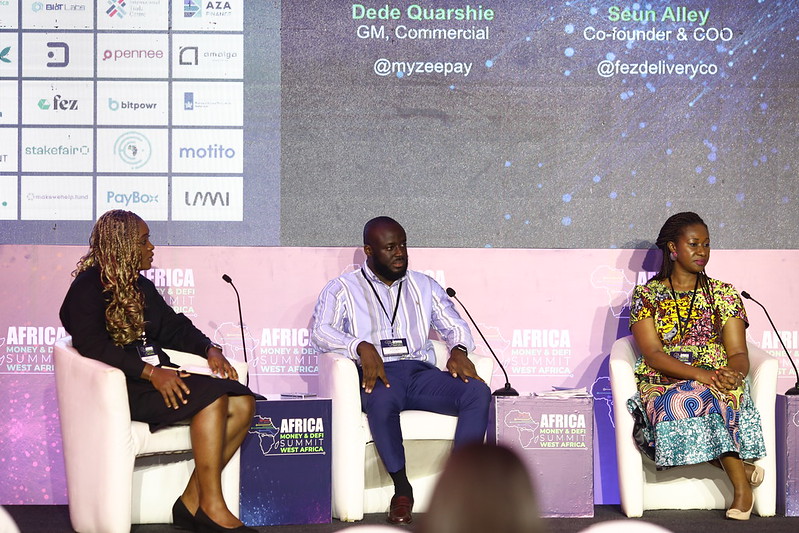
The African financial system is broken and requires innovation to fix it. Despite attempts by new financial technology firms to fill the gaps that exist, the foundation of the entire ecosystem, which is traditional finance backed by government-issued currencies and institutions, has left some gaps still wide open. The creation of blockchain technology and the innovation that has followed has created a different path for solving the problems of the African financial system. At the heart of the new approach is decentralized finance (DeFi), which refers to all financial services without centralized control. In this article, we will look at how DeFi can power the African financial system.
What is DeFi, and how does it work?
Decentralized finance (DeFi) encompasses financial services that operate without centralized control, like banks and other governmental financial institutions. Instead of the opaque structures of banks, transparent pieces of code build the entire DeFi infrastructure.
These online banks are accessible 24/7 and available to everyone without the need for trust because the app’s code can be verified. DeFi is constructed with blockchain technology that employs smart contracts to develop decentralized applications (DApps). Additionally, these apps are resistant to censorship and less expensive than centralized options.
There are multiple blockchains where people are building decentralized applications. The most popular of these networks are Ethereum, Solana, and BNB Chain. These decentralized apps (DApps) range from insurance buying, borrowing, lending, prediction markets, and decentralized exchanges operating in a faster and permissionless environment.
What can DeFi do for Africa?
Decentralized finance has the potential to bridge the financial infrastructure gap in Africa. Financial inclusion is crucial for the progress of developing markets, and DeFi offers a great chance for the continent in this regard. Lending, investing, settlements, online transactions, and payments could benefit from DeFi. The narrative of the power of DeFi in Africa has become popular, leading to new applications and use cases. Here are some of the ways DeFi is powering the African financial system:
DeFi led to the creation of stablecoins. The creation of a new digital financial system required a currency or, in this case, currencies. With the creation of DeFi, there was a need to have a less volatile and more stable alternative to regular cryptocurrencies, hence the creation of stablecoins. Since then, stablecoins have had multiple use cases across the world. On the African continent, stablecoins have become popular as a means of transferring value and maintaining value.
Many African currencies have struggled in recent years, and the pandemic and global economic downturn have only made things worse. Many people have turned to converting their local currency to US dollars to protect their savings. However, this can be costly, as opening and maintaining a dollar account at a bank can be expensive.
Creating stablecoins for DeFi has revolutionized how people save and hedge against inflation. With a crypto wallet, anyone can have a US dollar account, spend, and save without restrictions, regardless of location. With decentralized exchanges (DEXes) like Uniswap, users can swap other cryptocurrencies for stablecoins. Moreover, more decentralized exchanges have created an interface for users to deposit their traditional currencies to the DeFi ecosystem directly.
Beyond an avenue for maintaining value, stablecoins have become—a means of sending and receiving payments. Instead of using apps like PayPal that charge a fortune for transaction fees, most Africans working remotely are now accepting payment via stablecoins. As stablecoins become more popular, it could make intracontinental payments and trade easier. Although the US dollar is mostly used for cross-border transactions, there are few good and affordable options for transferring money on the continent. Stablecoins can connect the continent financially and create an environment for the growth of initiatives like the African Continental Free Trade Area.
Maintaining value can be boring without returns. DeFi provides a competitive alternative for Africans interested in building wealth by offering better returns and yield-earning compared to traditional banks. Instead of saving in banks that are unable to give great returns because they are affected by the downturn of the local economy and the devaluation of the local currencies, African DeFi users can save in other currencies like the US dollar through stablecoins or Ethereum and Bitcoin and earn better yield. This opens up an important tool for building wealth as Africa’s young population begins to work and requires methods to sustain what they earn.
On the other hand, credit facilities are also an important part of the economies of developing markets. Due to this, Africa has witnessed a surge in micro-lending/loan requests that cater to retail customers and small to medium-sized companies. However, this growth has faced various challenges, particularly with regard to the quality of service. Customers have reported instances of loan apps publicly shaming those who default on their payments, as well as complicated lending procedures. DeFi could change this.
Given the recent developments in the field, DeFi will likely become a major player in the lending industry. DeFi loans give users access to loans in other currencies besides the local devalued currency in addition to a wider global liquidity pool that brings about more competitive interest rates and conditions.
The adoption of DeFi in Africa may be a matter of time rather than possibility. The continent has a young population that is already cryptocurrency-curious. Nigeria recently emerged as the most crypto-aware country in the world in a survey by Consensys and YouGov. On top of this, most people are used to using financial services out of the banking ecosystem, like mobile money and other fintech applications. DeFi projects and companies have to battle with a lack of regulatory clarity and the need for more education to assist users with the learning curve of using cryptocurrency in a safe and secure manner.
